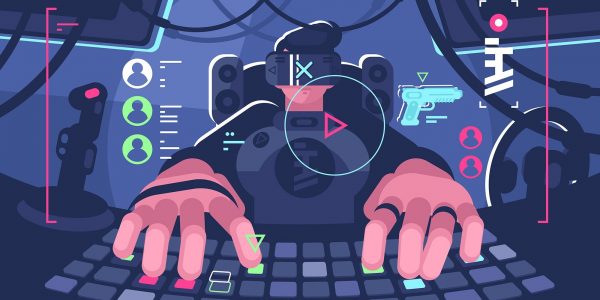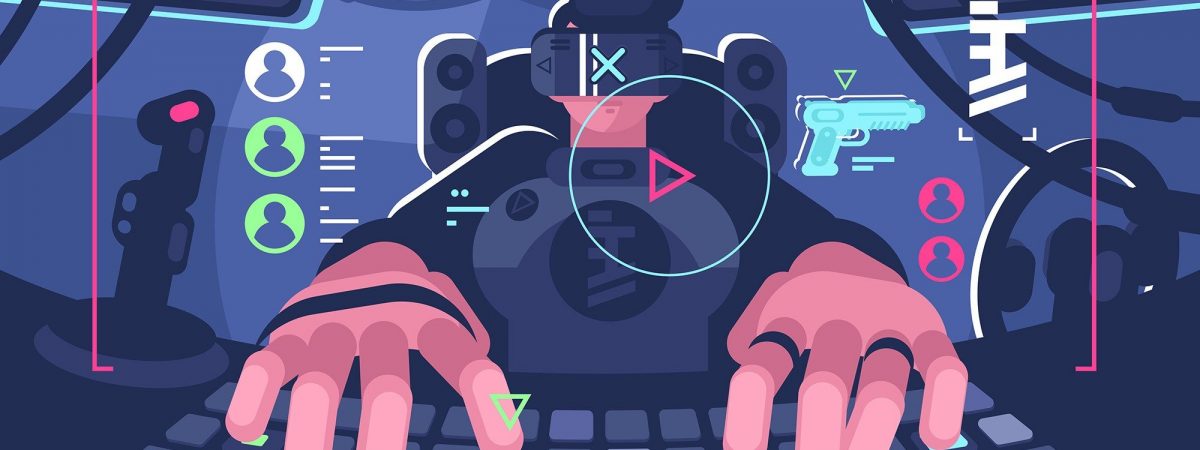You’ve likely heard of blockchain by now — it’s a popular buzzword commonly associated with the cryptocurrency world. Blockchain technology, cryptocurrency, and how blockchain applies to the gaming industry may confuse the average person.
Blockchain games are becoming increasingly mainstream and more blockchain games are slated to release shortly. Some experts are saying that blockchain gaming is the first real use case for blockchain, potentially changing the structure of the gaming industry.
Let’s learn more about blockchain games, how they work, some of the most popular blockchain games and what the future holds for this gaming technology.
What are Blockchain Games?
It’s helpful to know about blockchain before learning how it applies to gaming. A blockchain is often described as a decentralized and unchangeable ledger made up of digital data transactions. It’s mostly used in crypto — more than 10,000 cryptocurrency systems currently run on a blockchain.
Blockchain gaming is a bit of an open-ended term. Blockchain games can take various forms, with popular types being games using a blockchain system for payments for or in a video game and play-to-earn games.
Some game developers will, for example, use blockchain in the game transaction or mining inside of the game. Most blockchain games contain digital items, such as cosmetic skins, weapons and novel, collectible items.
In blockchain games, these items are real-world assets that come in the form of non-fungible tokens (NFTs) stored on the blockchain. Players who own these NFT assets gain complete control over the digital item and NFT items can even exist beyond the life span of a game. Players have exclusive ownership of the asset and can distribute it, sell it or hold it in a special digital wallet.
Companies from EA Sports to Zynga are considering using blockchain technology as an opportunity to develop games and create a fresh revenue stream.
Benefits of Blockchain Gaming
Blockchain games have some benefits over traditional video games. The market is rapidly growing for developers and gamers playing blockchain games are even more engaged than classic gamers. Additionally, developers can use more creative ways to make a profit and find new innovative ways to create valuable assets inside a video game.
Players also benefit from blockchain games — here’s how:
- True Digital Ownership: As mentioned above, assets earned in blockchain games are yours to keep, even if the game shuts down. Assets are directly tied to players, not the game itself.
- Full Control: Players have more control over their digital gaming assets than ever before. You can sell, trade or gift assets in any way you want and, depending on the games themselves, even transfer assets between games.
- Greater Decision-Making Power: Players of blockchain games can choose to change the game as they see fit. For example, if 51% of players vote to make a specific change, the game developer will be forced to make the change.
One thing to keep in mind about blockchain games is that regulations around digital assets are changing. For example, on April 1, 2022, a 30% tax was imposed on digital asset transfers in the gaming industry.
Over time, government entities worldwide will likely find ways to regulate crypto or other virtual assets. The Internal Revenue Service (IRS) seized $1.2 billion worth of cryptocurrency in 2021 alone. It’ll be interesting to see what other regulations emerge in crypto and how they may impact blockchain games in the gaming industry.
Some people suggest that blockchain game players will be more willing to abandon the game if they’re driven by profits rather than the entertaining or “fun” aspect. There are also concerns about the negative environmental impact of blockchain and potential scams that could be dangerous for players.
The Future of Blockchain Gaming
Blockchain games will likely transform the gaming industry in more ways than one. Some popular games include Axie Infinity, Splinterlands, CryptoKitties and Blankos Block Party, and more will emerge in the future. Consider trying out a blockchain game and see if it’s the right type of game for you.




